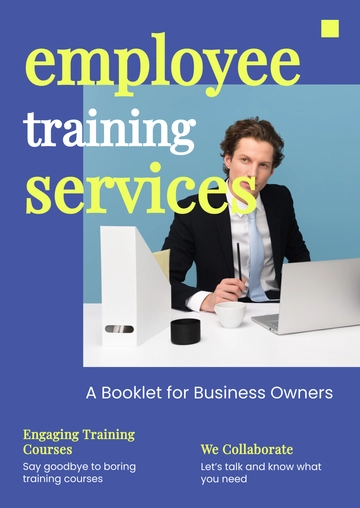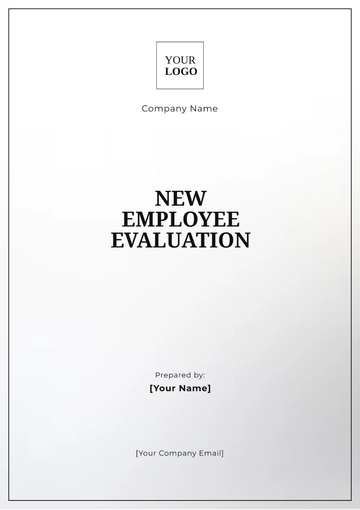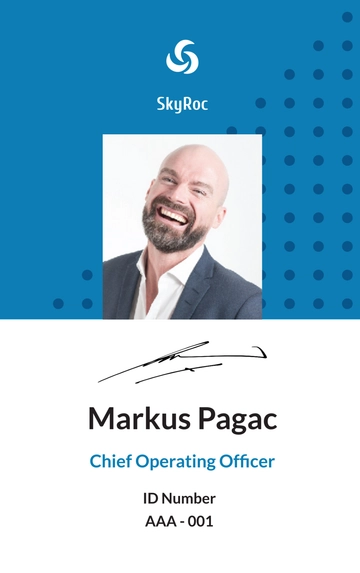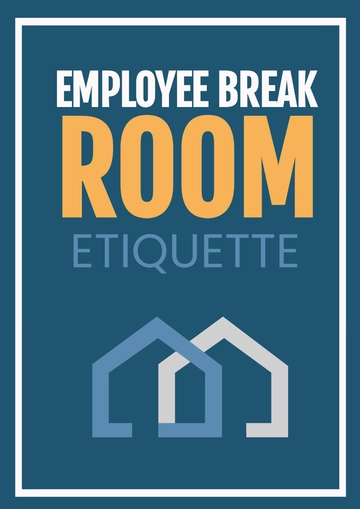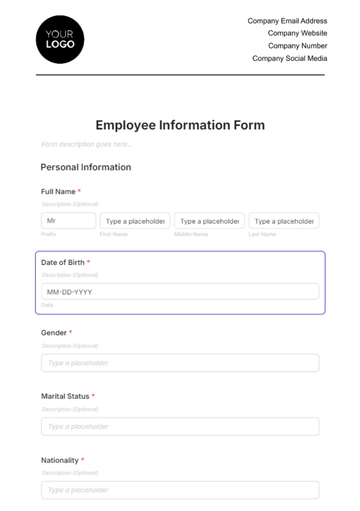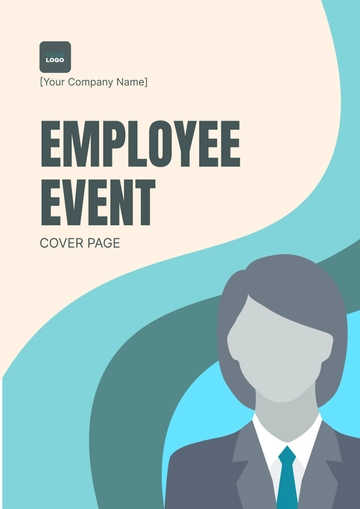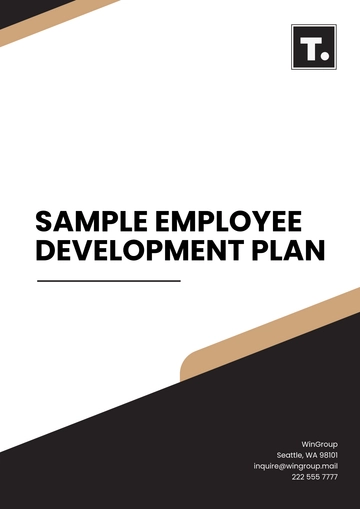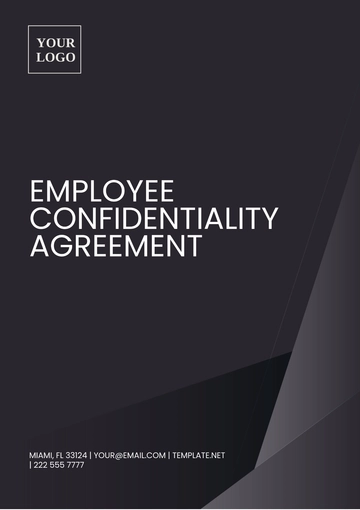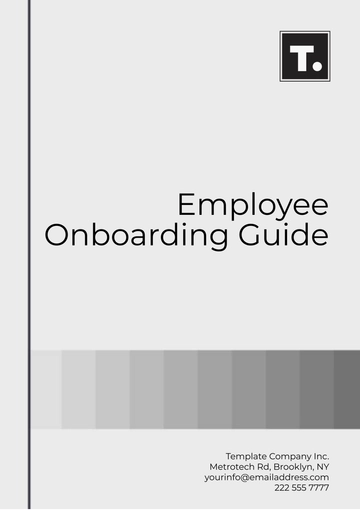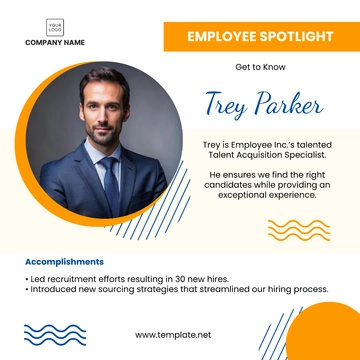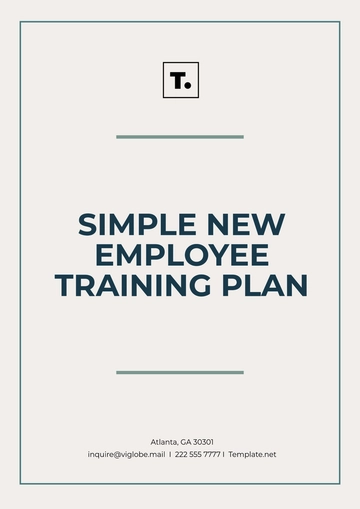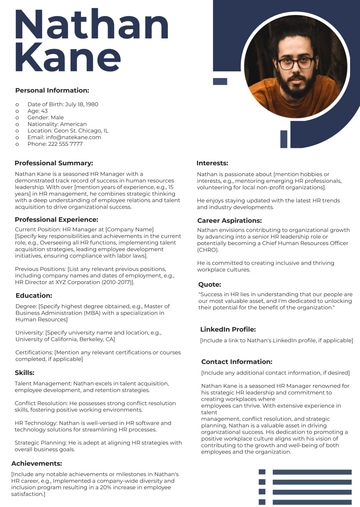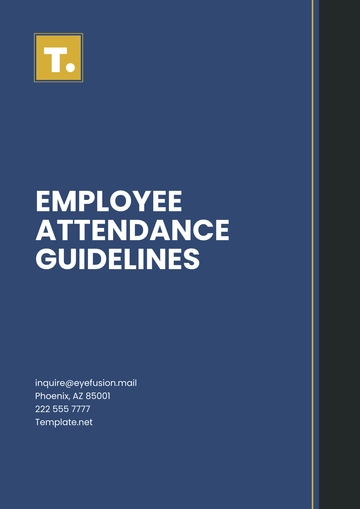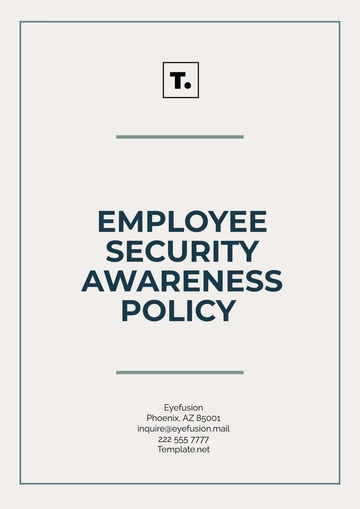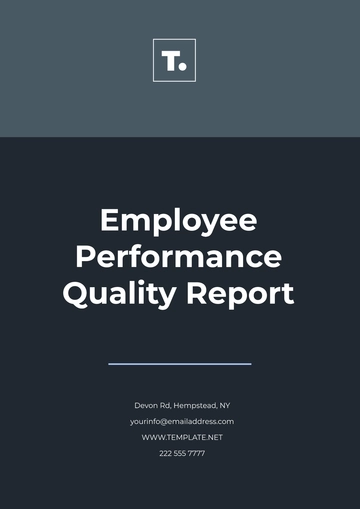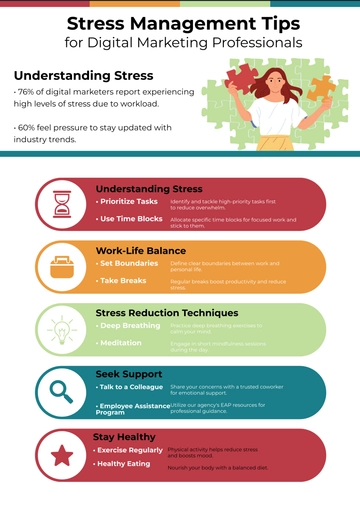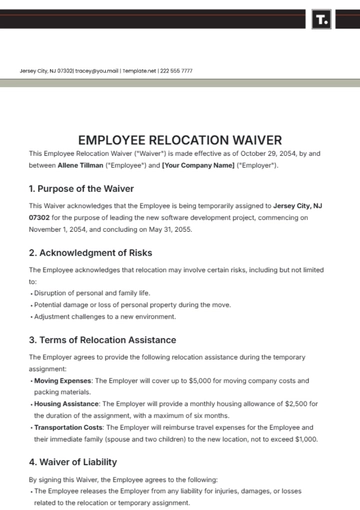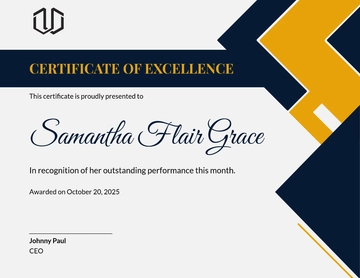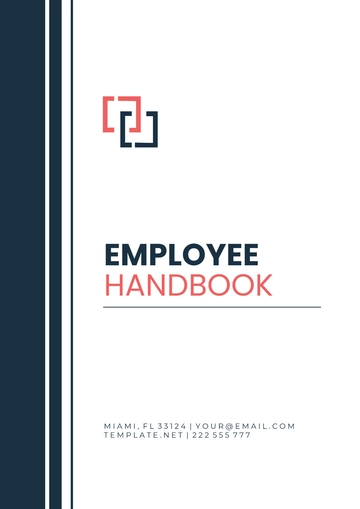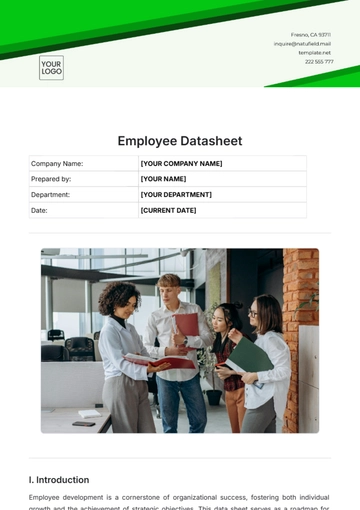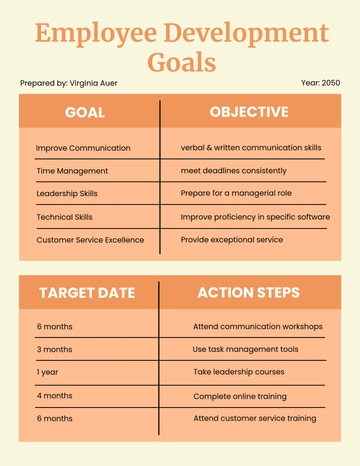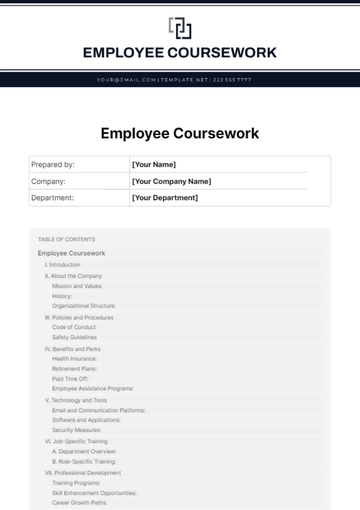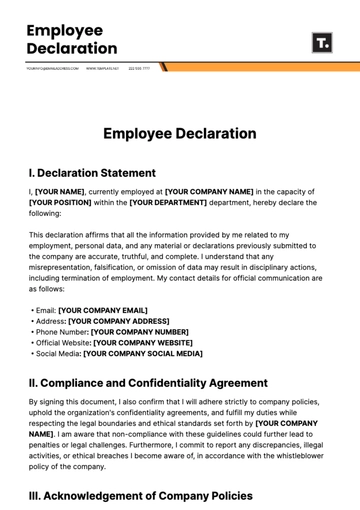Free In-depth Guide to Employee Counseling HR
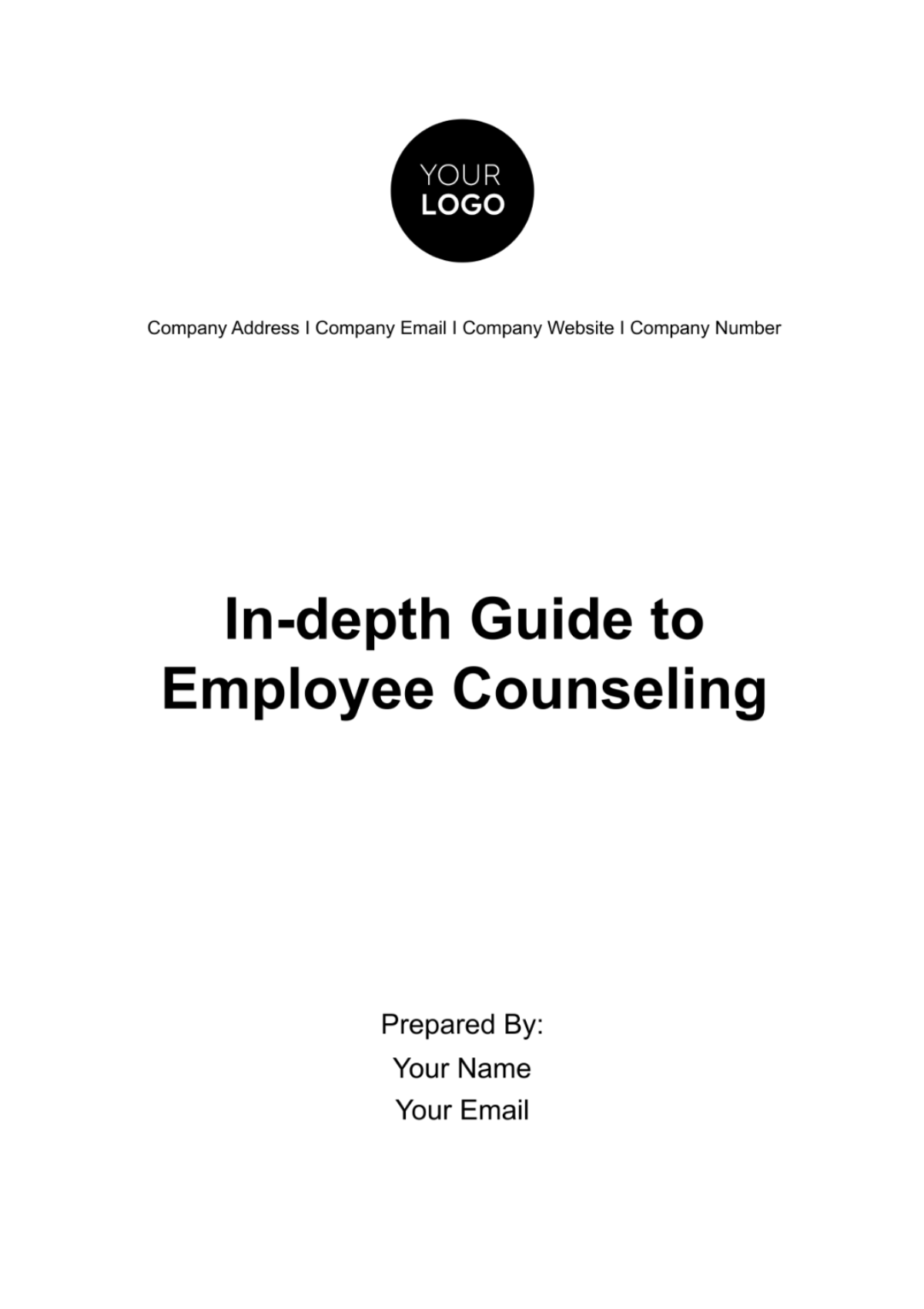
TABLE OF CONTENTS
Introduction to Employee Counseling .....................................................................3
Preparing for Employee Counseling ........................................................................4
The Counseling Process ............................................................................................5
Legal and Ethical Guidelines .....................................................................................7
Counseling Documentation .......................................................................................9
Best Practices in Employee Counseling ................................................................11
Evaluation and Continuous Improvement .............................................................11
Introduction to Employee Counseling |
1.1 Purpose of Employee Counseling
Employee counseling is an essential aspect of our commitment to maintaining a healthy and productive workplace. It aims to provide support to employees facing personal or work-related challenges that may affect their job performance and well-being. By offering counseling services, [Your Company Name] strives to create a supportive environment where employees can overcome difficulties and thrive.
1.2 Scope of Employee Counseling
Employee counseling at [Your Company Name] covers a wide range of issues, including but not limited to:
|
|
1.3 HR's Role in Employee Counseling
As an HR professional at [Your Company Name], your role in employee counseling is multifaceted. You will serve as a mediator, listener, and guide for employees facing challenges. Your responsibilities include:
Initiating counseling conversations.
Active listening and empathy.
Assessing employee issues.
Collaboratively setting goals.
Offering conflict resolution and stress management strategies.
1.4 Legal and Ethical Considerations
[Your Company Name] is committed to upholding the highest legal and ethical standards in employee counseling. This includes:
Confidentiality Ensuring the privacy of counseling sessions while complying with applicable laws. Non-Discrimination Treating all employees with respect, regardless of protected characteristics. Compliance Adhering to federal and state laws governing employee rights and counseling practices. Referral Knowing when to refer employees to external counseling services or specialists. |
Preparing for Employee Counseling |
2.1 Confidentiality and Privacy
[Your Company Name] recognizes the importance of maintaining confidentiality during counseling sessions. All information shared during counseling is strictly confidential and will not be disclosed without the employee's consent, except when required by law or if there is a risk to the employee or others.
2.2 Creating a Supportive Environment
To foster a supportive environment, HR professionals at [Your Company Name] are encouraged to:
Express empathy and understanding.
Offer a non-judgmental space for employees to share their concerns.
Ensure that counseling is a safe and stigma-free process.
2.3 Identifying Employees in Need of Counseling
Identifying employees who may benefit from counseling is a critical step. Look for signs such as changes in behavior, performance issues, or reports from colleagues. Employees themselves may also approach HR seeking counseling.
2.4 Documenting Employee Concerns
When an employee expresses concerns, it's important to document the details, including:
Date and time of the conversation.
Nature of the concern.
Employee's statements and emotions.
Any agreed-upon action steps.
The Counseling Process |
3.1 Initiating Counseling Conversations
Initiating counseling conversations is a delicate but vital step in the employee counseling process at [Your Company Name]. Here's a guide on how to approach this:
Select a Private Location Choose a quiet and private setting where the employee feels comfortable discussing their concerns. This ensures that the conversation remains confidential. Express Concern and Empathy Start the conversation by expressing genuine concern for the employee's well-being. Use empathetic language to convey that you're there to support them. Explain the Purpose Clearly state the purpose of the conversation. Let the employee know that the goal is to help them address their concerns and find solutions. Assure Confidentiality Emphasize the confidentiality of the session. Reassure the employee that what they share will remain private, except in cases where there's a legal obligation to disclose information or if there's a risk to the employee or others. Encourage Openness Encourage the employee to share their thoughts, feelings, and concerns. Use open-ended questions to facilitate a productive conversation. |
3.2 Active Listening Skills
Active listening is a cornerstone of effective counseling. Here are key principles and skills to enhance your active listening abilities:
Focus on the Speaker: Give your full attention to the employee. Maintain eye contact, nod to show understanding, and avoid distractions.
Use Reflective Responses: Reflect back what the employee is saying to show that you understand and empathize. Phrases like "I hear you," or "It sounds like..." can be helpful.
Ask Clarifying Questions: Seek clarification when needed. If something is unclear, politely ask for more details to ensure a complete understanding.
Avoid Interrupting: Resist the urge to interrupt or provide immediate solutions. Let the employee share their thoughts and feelings without interruption.
Paraphrase and Summarize: Periodically paraphrase or summarize what the employee has said to confirm your understanding and make them feel heard.
Manage Your Non-Verbal Communication: Be mindful of your body language, facial expressions, and tone of voice. Maintain a non-judgmental and empathetic demeanor.
3.3 Assessing Employee Issues
Assessing employee issues involves a thorough examination of the challenges they are facing. Here's how to conduct this assessment effectively:
Explore Root Causes
Ask Probing Questions
Consider Both Personal and Work Factors
Gather Relevant Information
3.4 Goal Setting and Action Planning
Setting clear goals and creating action plans are fundamental to helping employees overcome their challenges. Here's how to go about it:
Collaborative Goal Setting
SMART Goals
Actionable Steps
Responsibilities and Deadlines
Regular Review
3.5 Conflict Resolution Techniques
Conflict resolution is a valuable skill when dealing with interpersonal disputes in the workplace. Here are some conflict resolution techniques to employ:
Active Mediation Act as a neutral mediator between conflicting parties. Encourage them to express their concerns and perspectives. Empathy and Perspective-Taking Help individuals understand each other's viewpoints and feelings. Encourage empathy and active listening. Open Communication Facilitate open and honest communication. Ensure that all parties have an opportunity to speak and be heard. Seek Common Ground Identify common interests and goals to find areas of agreement. Focus on shared objectives rather than differences. Generate Solutions Collaborate with the parties involved to generate potential solutions. Evaluate these solutions together and choose the most appropriate one. Follow-Up After resolution, monitor the situation to ensure that the agreed-upon solutions are implemented and effective. Offer ongoing support if needed. |
3.6 Stress Management Strategies
Stress management is vital for employee well-being. Here's how to guide employees in managing workplace stress:
Identify Stressors
Mindfulness and Relaxation
Time Management
Work-Life Balance
Resource Referrals
Regular Check-Ins
Legal and Ethical Guidelines |
4.1 Confidentiality and Non-Discrimination
Confidentiality
At [Your Company Name], maintaining the confidentiality of employee counseling sessions is of paramount importance. We adhere to strict guidelines to ensure that all information shared during counseling remains confidential. HR professionals and counselors must:
Inform Employees: Clearly communicate to employees that the content of counseling sessions is confidential and will not be disclosed without their consent, except in cases where required by law or when there is a risk to the employee or others.
Secure Records: Safeguard all records and documentation related to counseling sessions in a secure and confidential manner. Access to these records should be limited to authorized personnel only.
Disclosure Obligations: Be aware of your legal obligations regarding disclosure. If a situation arises where you must disclose information (e.g., imminent harm to the employee or others), follow established legal procedures and consult with legal counsel if necessary.
Non-Discrimination
[Your Company Name] is committed to maintaining a workplace that is free from discrimination and bias. When conducting employee counseling, HR professionals must:
|
4.2 Compliance with Federal and State Laws
[Your Company Name] is committed to full compliance with all applicable federal and state laws regarding employee rights and counseling practices. HR professionals are expected to:
Stay Informed
Adhere to Regulations
Seek Legal Guidance
4.3 Protected Employee Rights
Employees have rights that must be respected during the counseling process. HR professionals at [Your Company Name] must uphold these rights:
Right to Privacy
Right to Accommodation
Right to Non-Discrimination
Right to Fair Treatment
4.4 Referral to External Counseling Services
In some cases, an employee's needs may exceed the scope of internal counseling services. HR professionals at [Your Company Name] should:
|
Counseling Documentation |
5.1 Record Keeping Best Practices
Record Keeping Importance
Accurate and organized record keeping is a fundamental aspect of the employee counseling process at [Your Company Name]. Proper documentation serves several purposes:
Legal Protection
Tracking Progress
Decision-Making Support
Best Practices
Use a standardized format for documenting counseling sessions. This consistency makes it easier to review and compare records over time.
Document counseling sessions as soon as possible after they occur, while the information is fresh and accurate.
Use objective and non-judgmental language when recording information. Stick to the facts and avoid subjective interpretations.
Record the date and time of each counseling session to establish a chronological record.
Include details such as the topics discussed, issues raised by the employee, goals set, and action plans developed.
Document the employee's perspective, emotions, and any solutions or strategies they propose.
Ensure that the documentation process respects employee privacy while adhering to legal requirements.
If applicable, obtain the employee's signature to acknowledge that they have reviewed the documentation. This can help confirm the accuracy of the record.
5.2 Safeguarding Employee Privacy
Privacy Protection
Protecting employee privacy is a top priority at [Your Company Name]. When handling counseling documentation, HR professionals must take the following measures:
Secure Storage
Electronic Records:
Access Controls
Limited Disclosure
Retention Period
5.3 Documentation Templates
Here is a list of documentation templates you can use for employee counseling:
Employee Counseling Session Record Template
Performance Improvement Plan (PIP) Template
Conflict Resolution Session Notes Template
Stress Management Action Plan Template
Referral to External Counseling Services Form
Best Practices in Employee Counseling |
In fostering a proactive approach to issues, [Your Company Name] prioritizes early intervention and prevention. By identifying potential concerns before they escalate, we create a more harmonious workplace and enhance employee well-being. This approach involves regular check-ins, conflict resolution training, and proactive communication to address issues swiftly.
Ongoing HR training is integral to our commitment to excellence. HR professionals at [Your Company Name] engage in continuous learning to stay updated on evolving HR practices, legal requirements, and counseling techniques. This ongoing education equips our team with the knowledge and skills needed to provide effective support to employees. Furthermore, it ensures that our counseling practices remain aligned with the highest standards and best practices in the field.
Evaluation and Continuous Improvement |
In our commitment to employee well-being, [Your Company Name] recognizes the importance of evaluation and continuous improvement. We regularly assess the effectiveness of our counseling programs, analyzing key metrics and feedback from employees. This evaluation process allows us to fine-tune our approach, ensuring that the support we offer is impactful and responsive to employees' needs.
To maintain excellence in our employee counseling services, we actively seek feedback from both employees who have undergone counseling and our HR professionals. This feedback loop fosters an environment of openness and collaboration, driving our efforts to enhance counseling practices continually. Furthermore, as our organization evolves, we remain adaptable to changing organizational needs, adjusting our counseling strategies to align with the shifting dynamics and challenges that may arise in the workplace.
- 100% Customizable, free editor
- Access 1 Million+ Templates, photo’s & graphics
- Download or share as a template
- Click and replace photos, graphics, text, backgrounds
- Resize, crop, AI write & more
- Access advanced editor
Welcome to the ultimate resource for Employee Counseling – a comprehensive HR Template guide exclusively on Template.net. Elevate your employee support with our expertly crafted, editable, and customizable document templates. Harness the power of our Ai Editor Tool to tailor solutions for your unique needs. Empower your HR journey with the In-depth Guide to Employee Counseling HR Template, brought to you by Template.net.
You may also like
- Employee Letter
- Employee ID Card
- Employee Checklist
- Employee Certificate
- Employee Report
- Employee Training Checklist
- Employee Agreement
- Employee Contract
- Employee Training Plan
- Employee Incident Report
- Employee Survey
- Employee of the Month Certificate
- Employee Development Plan
- Employee Action Plan
- Employee Roadmap
- Employee Poster
- Employee Form
- Employee Engagement Survey
